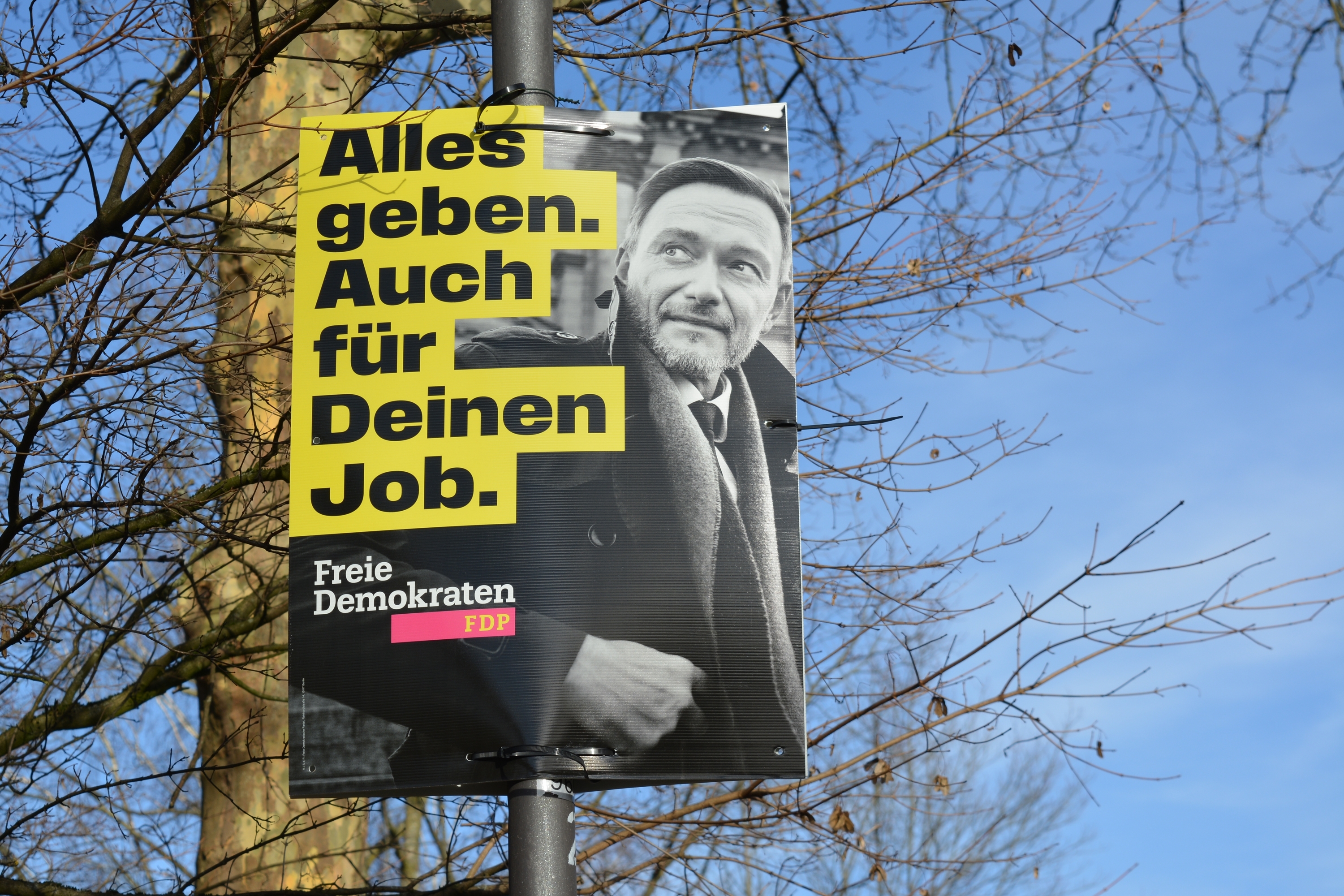The Liberal Democrats in the German Federal Elections: A Party Fighting for Survival
The Free Democratic Party FDP, in great difficulty ahead of the early elections in 2025, is trying to recover after the collapse of the coalition with the Social Democratic Party of Germany (SPD) and the Greens. Its wavering position between government and opposition has undermined its credibility, and it is struggling to surpass the 5% threshold.

Its program focuses on economic recovery, with tax cuts and a reduction in the role of the state. It has also toughened its stance on immigration to appeal to the Christian Democratic Union (CDU), but its tacit cooperation with the far-right party Alternative for Germany (AfD) has sparked fierce controversy. Despite its ambition to establish itself as a key player, the FDP risks disappearing from the Bundestag, a victim of its lack of consistency and voter distrust.
Jeanette Süß is a researcher at the Study Committee on Franco-German (Cerfa) at the French Institute of International Relations (Ifri), working in particular on the European Union and the Franco-German relations.
This publication is available in French (pdf): "Les libéraux-démocrates face aux élections fédérales allemandes : un parti en lutte pour sa survie"

Available in:
Themes and regions
DOI
Notes du Cerfa, No. 183, Ifri, February 2025
Share
Related centers and programs
Discover our other research centers and programsFind out more
Discover all our analysesThe Franco-German Brigade and the Revival of European Defense
One thing has been clear since Donald Trump's return to the White House: the very existence of the European unification project is threatened. Unless it develops a sovereign defense policy to counter the war in Ukraine and the weakening of American security guarantees, the European Union will continue to see its internal cohesion and external attractiveness wane.
Friedrich Merz and the Zeitenwende 2.0. A “New Era” for Transatlantic Relations?
On February 23, 2025, almost 60 million voters were called upon to elect a new Bundestag. These elections will also give rise to a new government in Europe's largest economy.
After the Elections: Germany in Search of Shaken Stability?
With a voter turnout of 82.5%, Germany recorded its highest participation since 1987—an increase of 6.1 percentage points compared to 2021. As in the previous election, the high turnout particularly benefited the Alternative for Germany (AfD), which was able to mobilize many former non-voters. Many voters sought to punish the outgoing government with their ballots, as its approval rating had dropped to just 14% before the coalition broke apart in November 2024. Germany is now very likely heading toward a grand coalition between the CDU/CSU and the SPD, with exploratory talks having begun on February 28.
The German Greens as an Alliance Party: The End of an Illusion?
At the Wiesbaden Congress in November 2024, Robert Habeck, currently Minister for the Economy and Climate, was nominated as the Green Party’s candidate for the Chancellorship in the early parliamentary elections on February 23, 2025. The party, founded 45 years ago, is now firmly established in the German political landscape. Wishing to turn the page on an unloved ‘‘traffic light’’ coalition, the party is banking on a personal campaign and an optimistic discourse based on the energy transition and social justice.










